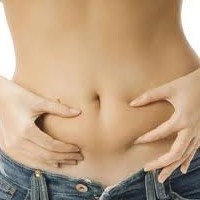Barriers to Healthy Diets -- Removing them is not as hard as you think
Barriers to healthy diets are placed into four broad categories:
What is a Healthy Diet?
A healthy diet provides the recommended daily allowance for vitamins, minerals, protein, carbohydrates, and fat. Any diet that fails to meet the minimum daily allowance for any nutrient is unhealthy. Of course, providing the daily allowance for all nutrients is next to impossible given the poor nutritional value of today's diets.
We eat on average 1.5 meals a day (not even close to the suggested 5-6 meals). The one meal we manage to eat is usually late in the evening, high in calories, high in fat, and is missing Group I Foods (fresh vegetables and fruit).
The majority of young men between the ages of 20-25 eat only 2 servings of fruit and 1 serving of fresh vegetables throughout the week! The next generation is nutritionally starved.
A healthy diet is quite simple and easy to follow. Here are the steps to eating a healthy diet:
If the result is a positive number, you have a Positive Energy Balance. Simply, cut back on the amount you eat.
If the result is negative, you have a Negative Energy Balance. Increase the amount you eat.
Some weight loss experts advocate a strong negative energy balance at baseline. In theory, this makes sense but in practice it's associated with weight regain.
I believe that energy should be balanced or slightly negative at baseline. The closer to a balanced energy state, the better the chance for avoiding weight regain and maintaining your ideal weight for a longer period of time.
Removing External Barriers to Healthy Diets
Two difficult external barriers are peer pressure and time. Our friends and family influence our lives more than we like to admit. They affect our decisions, choices, moods, behavior, and weight.
During medical school, I worked in a weight loss clinic to make some money. I will never forget the level of influence a spouse or friend could have on a patient. Several times, I saw first hand someone, other than the patient, make the dieting decisions.
At this level of influence, our peer groups can make a big impact on eating a healthy diet. Just keep this influence thing in mind. OR, should I say, "Keep it in mind only if you have TIME."
Time is another rarely acknowledged external barrier to healthy diets. We live in world that seems to lose time. The normal 24 hour day feels more like 15 hours. All we do is rush from one event or appointment to the next. Eating a healthy diet is next to impossible.
Please, slow down. Who knows, by slowing down we might actually pay attention to the important things in our lives. I find that the more I rush the less I get done. And what I do finish, really isn't all that important.
Be serious about eating a healthy diet and slow down.
Removing Dieting Barriers to Healthy Diets
About two to three decades ago, while watching repeats on TV, Americans changed their diets and started eating lots of fat and processed foods. We have suffered ever since.
Eating lots of fat created a macronutrient imbalance and has clogged our arteries. Then we fell in love with processed foods. This love affair drained all of the vitamins and minerals from our bodies and resulted in a micronutrient deficiency.
Until we restore things to the pre-TV Dinner diet, we will continue to suffer heart attacks and weight gain.
It's really crazy...we stuff ourselves with heavy fat and then starve for vitamins and minerals.
Removing Physical Barriers to Healthy Diets
Physically, our lack of exercise is the greatest barrier to healthy diets. Start exercising! Walk. Jog. Swim. Lift weights. Sweat. Move. Breath. Live.
Removing Psychological Barriers to Healthy Diets
The mind can be tough to control, especially when it comes to hunger. But what can help is changing your food perspective. Where do you place food in your life? To help you through this important change in perspective, check out...Weight Loss Psychology
Conclusion
Watch the influences in your life, slow down, reduce fat, eat raw vegetables and fruit, exercise, and change your food perspective.
Once you've done all that, then you can focus on eating a healthy diet. I think we need to get back the 24 hour day, what do you think?
To Healthy Living!
Michael A. Smith, MD
Chief Medical Consultant
Diet Basics Website
Dr. Smith is the Chief Medical Consultant for the Diet Basics Website, a content rich weight loss website dedicated to all dieters. Visit his site and check out his Diet Basics News Blog and RSS Feed. Hundreds of E-Zines and Websites have already tapped into this incredible free source of weight loss information. Don't miss out!
-
Cellulite Surgery: Cure Worse Than Condition
Any sensible doctor will tell you that cellulite surgery is a risky, e
-
Foods That Help Burn Fat
Incorporating fat burning foods into your diet along with taking
-
Healthy Weight Loss - Top Secrets For Positive Lifestyle Change
Are you wondering how to achieve healthy weight loss? Modif
-
Best Meal Plan To Lose Weight - Is a One Meal Diet Plan the Best Way to Lose Weight?
Best Meal Plan To Lose Weight Losing weight has become the new rule t
-
3 Reasons Why Youre Sabotaging Your Weight Loss Plan
Healthy weight loss is all about having the right balance o
-
How to Lose Body Fat Easily, A Kyle Leons Customized Fat Loss Review
Losing body fat gets harder even as we get older and when having kids.
- DON'T MISS
- Phentermine Diet Pills for Maintaining Your Weight Loss Program
- Fat Burning Furnace - Food Weight Loss Program with Bigger Results Than Fad Diets?
- Don抰 Be Misled. The Best Attitude and Action for Weight Loss
- Weight Loss vs. Body Fat - Mirrors and Clothes dont Lie!
- Foods to Eat to Lose Weight - Its Not About Rabbit Food!
- Quick Weight Loss Secrets
- How To Lose Fat Fast For Women
- The Truth Behind Fast Weight Loss Diet Plan
- Weight Loss - A Complex Issue - Learn More
- The Best Diet Secrets on How to Shift Your Calories for Crazy Fat Loss!




